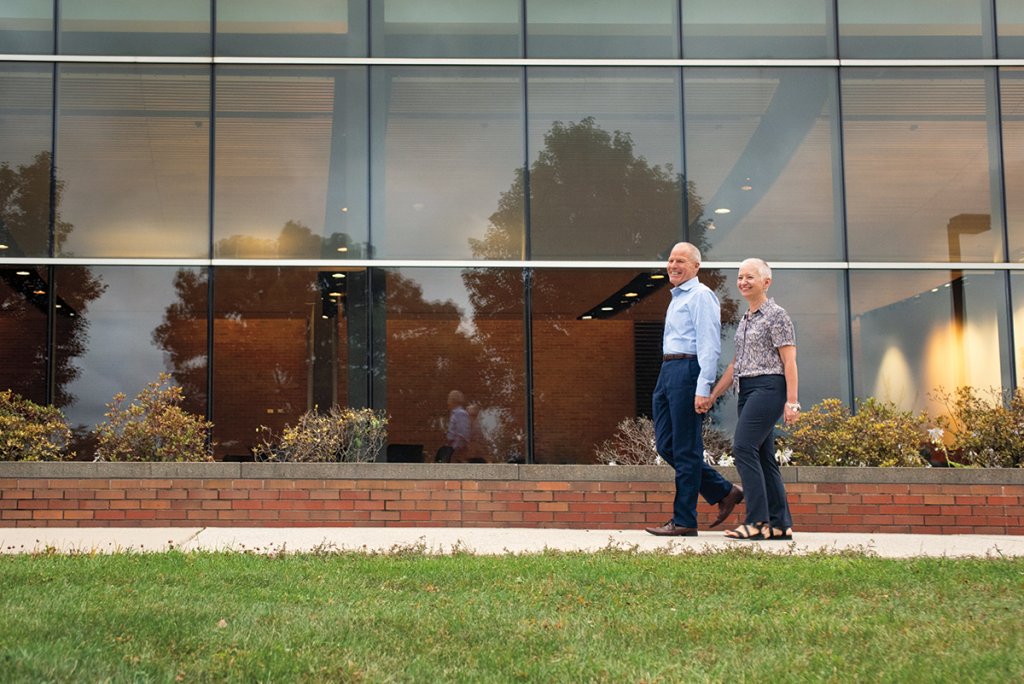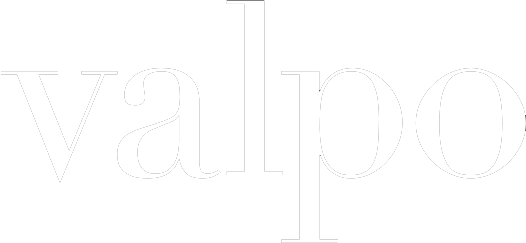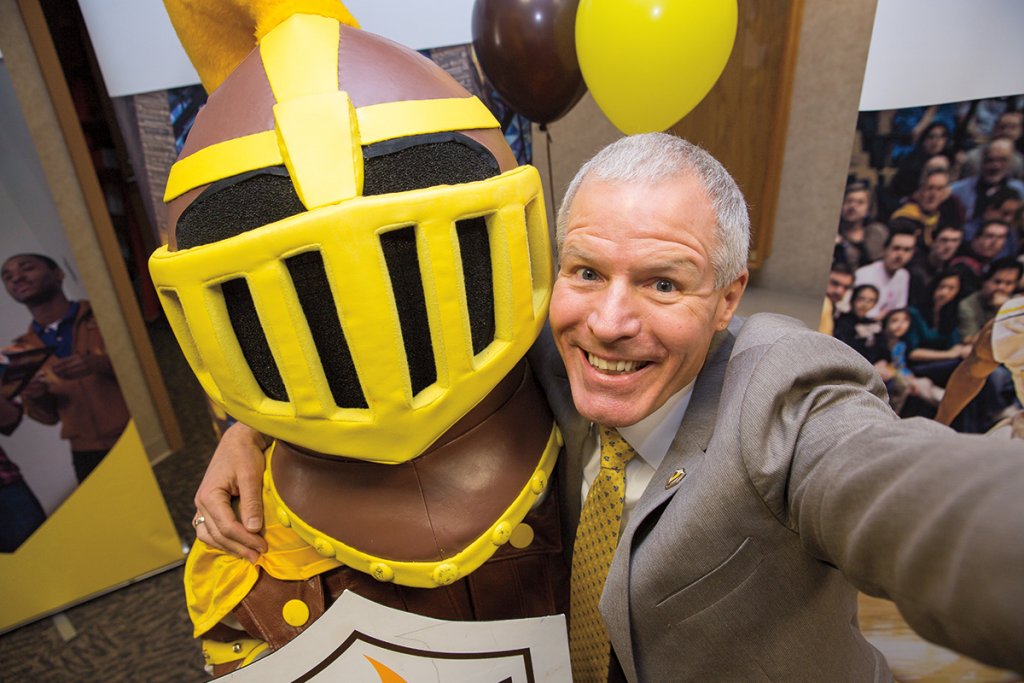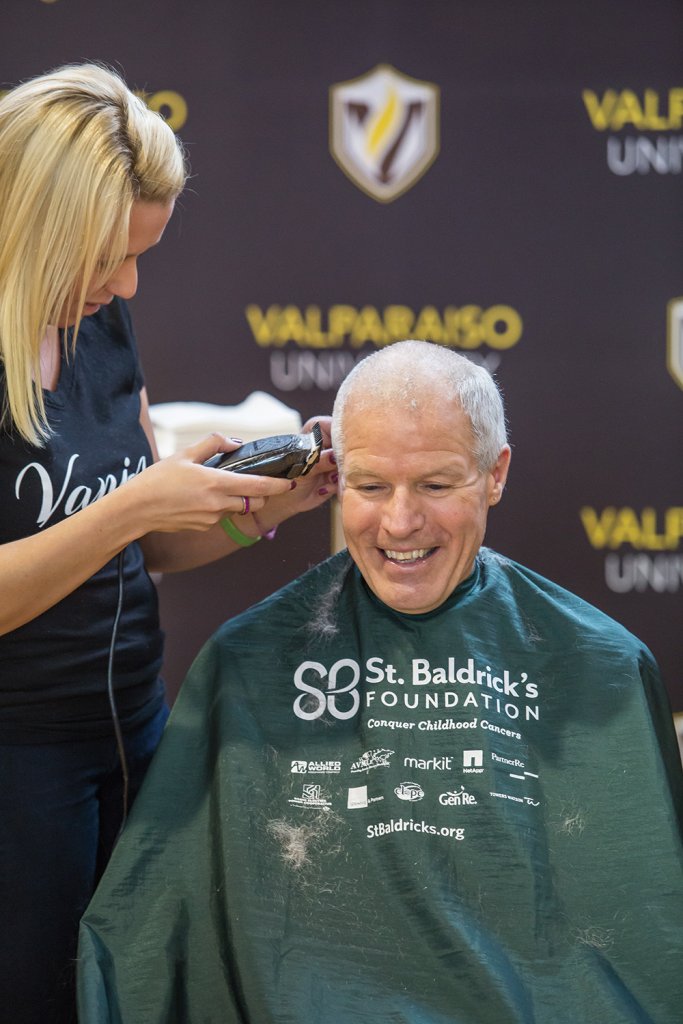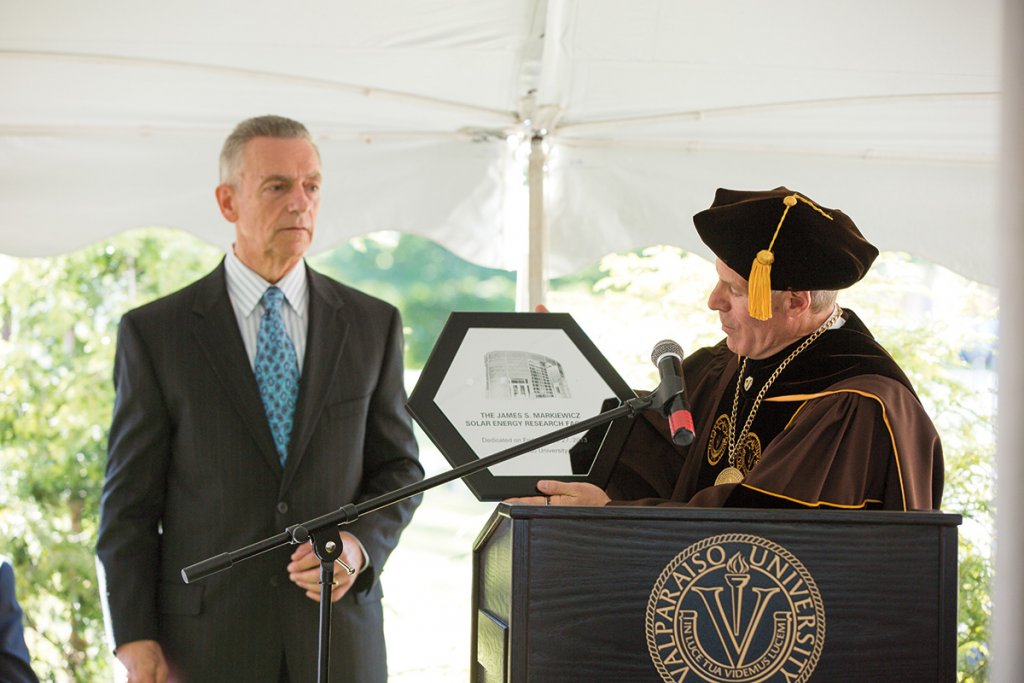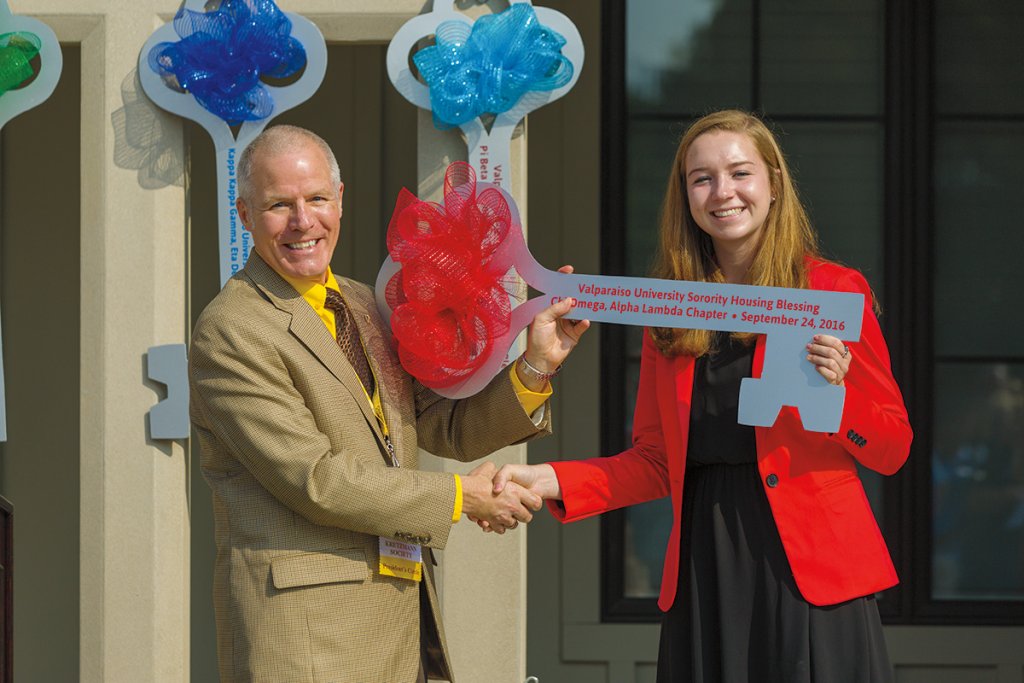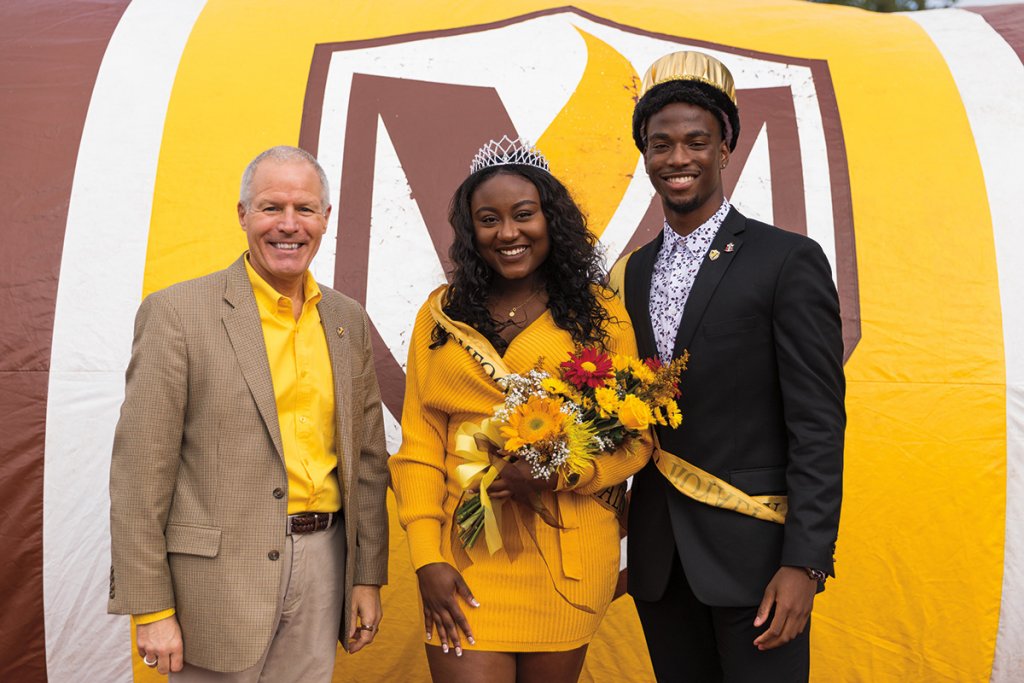President Mark Heckler recently announced the Valparaiso University Board of Directors has begun a search process to identify the next president of the University. We sat down with President Heckler to talk about this time of transition, change, and new beginnings.
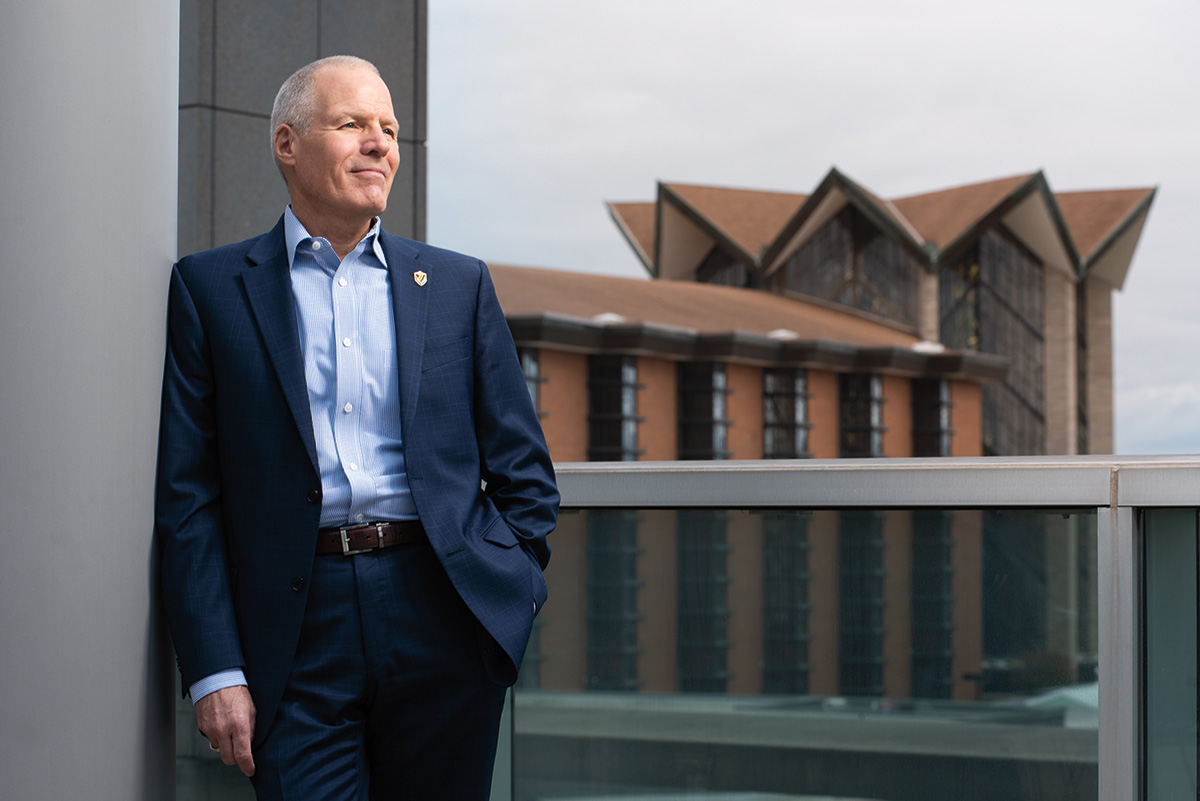
Q&A
You recently recommended that the Board of Directors begin searching for Valparaiso University’s next president. From a timing standpoint, do you see this transition as a natural one?
This does seem like a natural point in the lifecycle of the University for this type of leadership transition to occur. I have already started to see momentum building with folks beginning to think about the future and our strategy. So, it’s a good time because campus constituencies are ready to start thinking about the next chapter of Valpo’s history. The evolution of the institution is happening very naturally, and that factors into the timing as well. The new president can come in at a time when the campus is yearning for the next set of strategic conversations and focused on where we are going and the next big set of decisions and opportunities before us. So that sets the table for a president to come in to lead that effort across all of the constituencies and then to lead the University forward into the future.
How is the momentum taking shape on campus?
First, we’ve been launching a number of new academic programs including bioengineering, business analytics, cyber security, data science, music therapy, and many more, creating an opportunity to build enrollment. We also have new faculty coming in and a number of faculty retiring, so there are new voices and energy at the table in every college. The College of Business is a great example. There’s been a tremendous wave of new faculty with great expertise — as well as diversity of perspective and experience, race, and ethnicity — so the college is at the beginning of what will be a great transformation. The College of Nursing and Health Professions also continues to build and grow; they are moving into the occupational therapy space, starting with a doctoral program.
There are some tremendous opportunities before us in expanding our online education efforts at the graduate level, efforts that will be transformational and economically advantageous for the University. All those pieces are falling into place.
You will leave two kinds of legacies at Valpo — what you have accomplished personally, and the foundation that you have created for the University. In light of this, how are you trying to position Valpo for the 21st century?
No legacy is ever built by one person. It is the labor of love of many people — students, faculty, staff, alumni, and the Board of Directors. And in this case, the dedication of my wife and best friend in the world, Veronica, whose contributions to Valpo cannot be underestimated. Veronica continues to play an incredible role as my partner in this great work as well as an active community member and champion of Valpo. I appreciate her support, faith, and desire to walk with me on this great adventure.
In terms of legacy, what I wanted to focus on first was building an institutional culture to make campus inviting, welcoming, and inclusive of people coming from many different backgrounds. We would bring various beliefs together, even as we continue to center the University in its Christian identity and calling. We would continue to nourish the Lutheran ethos of the University and become more diverse and inclusive.
Second, because of the unique nature of Valparaiso University — which is unlike any other faith-based institution in America — it became clear in dialogue across campus that we have developed a core competency that is quite unique: to be a place where people who might not agree on things can come together, live together in a community, love one another as Christ calls us to do, and talk about those things that might separate us with humility and compassion.
People are not always in dialogue these days — how did you decide to pursue this competency and encourage community in the face of potential discord?
This competency is something we discussed as a campus 12 years ago, even before these more divisive times. We concluded that we could really be unique in this difficult yet important space. People these days want you to take sides, but we believed it was important for us to never take sides and instead be a place where we would bring people together and have these difficult conversations about what it means to live together in community. I believed strongly that this was critical to the future identity and mission of the University.
Over the years, we tried to recruit students, faculty, and staff who share that vision and wanted to build that community. It will always be a work in progress and it will never be perfect. We will always be living in the tension between various ideas and positions — but to me that is what can set Valpo apart. It already sets Valpo apart now, but I think it could do so even more in the years to come. To create and graduate students who have that competency can help change the world. The world needs more Valpo graduates — good people who do great things for the sake of the world. That is, what I think — or at least what I hope — will be the legacy of the institution.
Can you talk about community for a second?
What does community mean to you?
That’s an interesting question — one I’ve been thinking about a lot. A community for me is a group of people who, from whatever perspective they might have, are called together for a common purpose. My perspective is that God calls us into community. Sometimes we find ourselves in surprising communities, in surprising places. But it’s around that construct of common purpose that we build our relationships with each other, our inner relationships, and our interdependency on each other.
You use the word “calling.” What does it feel like to be “called”? Is it a visceral feeling? An intellectual feeling?
For me, calling has been, first, a visceral experience — a kind of knowing that this thing I suddenly find myself embarking on is something I am meant to do. There is a rational component, as you begin to think through the major decisions in your life. But the things that have been significant in my life have had a visceral, deep, abiding sense of knowing. I’ve also known when it was time to change, or shift, or move. One does not necessarily have just one calling in life. It’s a very rare and special person who has that kind of clarity of calling and purpose over a lifetime. For me, there have been several shifts in my life and they have each been callings; they have been vocations. As the writer and theologian Frederick Buechner said, “The place God calls you to is the place where your deep gladness and the world’s deep hunger meet.” A calling is not just what you feel passionate about, but something that must be fulfilled, and you are brought there to do it.
Was education a calling?
Absolutely. I loved being a professor. It was an incredibly rich, fulfilling part of my career and I did it full-time for 16 years of my professional life. I loved being an artist, I loved teaching students, undergraduate students — that certainly always felt like a calling.
So how did you get into administration?
I can tell you what led me to work on the administrative side of the house was a deep sense that it could be better — the experience could be more than it was, that we could do better by the students who were choosing to link their futures to our colleges and universities. As I looked around, I realized that I could really work on this issue, and that it would be important work because it would make the students’ educational experience better, the outcomes stronger, and their opportunities more significant or wider.
What led you to Valpo?
As I was serving as provost at the University of Colorado, I realized I wanted to go and spend what I sensed would be my last significant professional appointment in a place where I woke up every morning and believed deeply in what I was doing — that I believed in the mission of the place, in what the students were going to go out and do in the world. That there was a high and noble purpose to what the institution was and what it was about. It really wasn’t until I interviewed with Valparaiso University that I came home and said to Veronica, ‘I just feel like I was meant to be here, like I was meant to do this, and I don’t think they’ll hire me in a million years but if they do, it will be my calling.’ It was so clearly evident that this institution’s desires and hopes aligned with what I hoped I might be able to do in partnership with everyone there, what I was — I’ll use that word again — ‘yearning’ to do.
Looking back on your career at Valpo, did you experience any surprising or “ah-ha” moments that changed your perspective?
First, I’ve found that when you come to a university after the interview process, you often spend a lot of time discovering all of the things that they didn’t tell you — where the skeletons are. My experience at Valpo in the first several years was the complete opposite. I just kept uncovering one gem after the next. Instead of holding back on how difficult or challenging things might be, Valpo had actually held back on how good they were at so many things. It is in keeping with the humility of the University, which over time has placed it at a disadvantage in a very competitive marketplace. One of the things that I have been working on over the last year is finding an appropriate reason to boast — with humility! — about what our students are doing for the sake of the world, and that we shouldn’t be shy about that. That was an unexpected discovery.
Did you make any other pivotal discoveries at Valpo?
My very first day in the office turned out to be instrumental in setting the direction for my early presidency. I love sacred spaces — I am drawn into them and have explored them all over the world. When I walked into the Chapel during my interview, that sealed the deal. I knew I wanted to be here, where there was such an abiding commitment to creating and sustaining a sacred place dedicated to discovering the boundaries of human knowledge. So, as I was exploring campus that first day on the job, I went down the spiral stairs around the baptismal font of the Chapel and into the undercroft, where there is a hallway and a series of glass cases. I don’t think anyone had opened those cases or put anything in there in 30 years. But there are all of these black-and-white photographs and newspaper articles that date back to the fire that destroyed the Memorial Chapel on Old Campus, the original dedication of the chapel in 1959 and its rededication in 1969. And there was a quote from O.P. Kretzmann, who served as president of Valpo for 28 years, that reads: “If at some dim and distant time we might have here a faculty, students, and administration who no longer believe in the purposes of this chapel, it will still be necessary for them to come to terms with what this chapel represents. They can never quite get away from this silent witness to our faith.”
When I read that, it was like a lightning bolt went through me. I realized the central importance, during a time when Christianity was increasingly marginalized, of redoubling our intention as a University to fulfill the central mission of this Chapel for the University. That set into motion a number of projects in the first half of my presidency — including the foundation of the Institute for Leadership and Service, the merging of church relations and programs, the renovation of the Chapel, and the addition of the Helge Center — all undertaken to reestablish the centrality of the Chapel as a core component of campus life. And, as the Chapel was celebrating its 50th anniversary, to ensure that I had done my part to try to position it for the next 50 years.
Is there anything else that you would like to share about the transition itself ?
I think when the new president is named, and that individual has some time to begin to get to know the campus and to think about where they want to focus their time and energy, I will look to the next president to advise me on how best I can serve that person and meet their needs. So, I’m not really spending time thinking about what I will be doing in the transitional period. I will wait for that individual to come, and I will serve the University at their direction for a period of time. That’s the most critical thing you need to do in a transition. First, do everything you can to support the success of the next president. Second, “get out of Dodge” because all of the constituents of the campus, and the Board of Directors, need to orient themselves to the new president.
Valpo is a faith-based university, and you are a man of faith in a way that feels so inclusive. How has faith played a role in this decision or in your tenure?
First and foremost, faith is an act of trust. You have to trust in what you believe and trust that while you might not always know the next steps, God has a plan. Letting go of something that I have loved to do over these 12 years, something that has been the greatest privilege and blessing of my professional life, would be a lot harder to do if I didn’t have faith — if I didn’t trust that there is a bright future ahead for Valparaiso University and that a wonderful new person will come into this role and take the University to another dimension. And that is all part of God’s plan for Valpo.
Do you and Veronica anticipate being able to spend more time with your family?
Absolutely. We have four children and nine grandchildren, with a 10th on the way. Going back to the idea of calling, this summer, all 19 of us got together for a long weekend at Great Wolf Lodge in Cincinnati, Ohio, a hotel with an indoor waterpark, restaurants, arcades, and more.
I was floating in the lazy river with one of my twin grandsons, Owen, and was holding onto him for dear life. That little child looked at me with the kind of pure and all-consuming delight on his face that only children can have, and I just watched him. I looked into his eyes, saw that unbridled joy, and was overwhelmed emotionally because I felt that I was where I was supposed to be. I felt such a deep sense of the preciousness of this time with these children, to try and soak in that joy and contribute to it and contribute to their formation — as well as spoil them rotten and fill their minds with all the wild and improbable stories that grandfathers do. I’m really very, very excited about this next part of life. We’ll be Hoosiers going forward because we have Hoosiers in the family. Our two Indiana families are both Valpo grads, both our daughters and their spouses. We’re a Valpo family — we’ll always be part of Valpo, and Valpo will always be part of us.
We’re a Valpo family — we’ll always be part of Valpo, and Valpo will always be part of us.”
